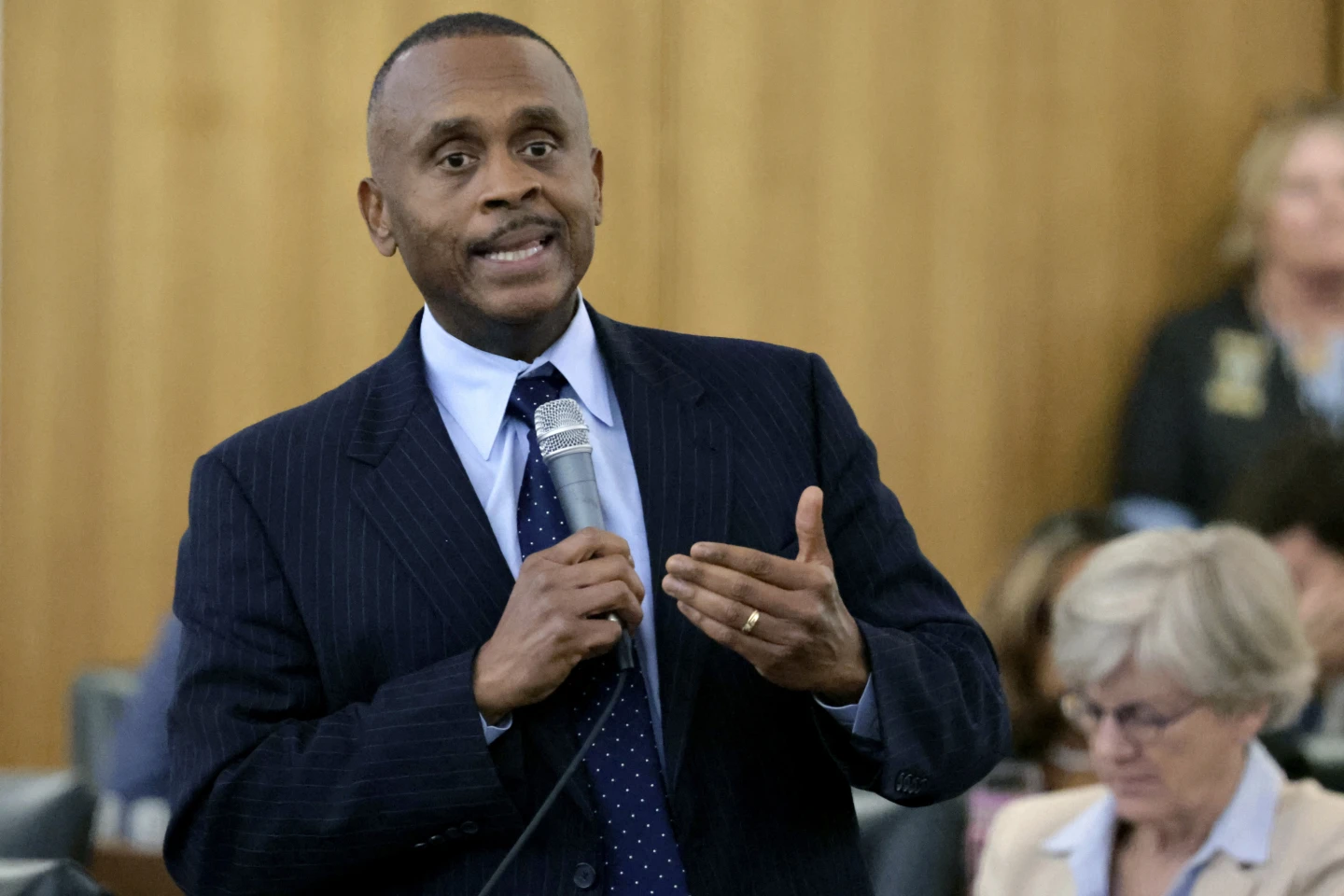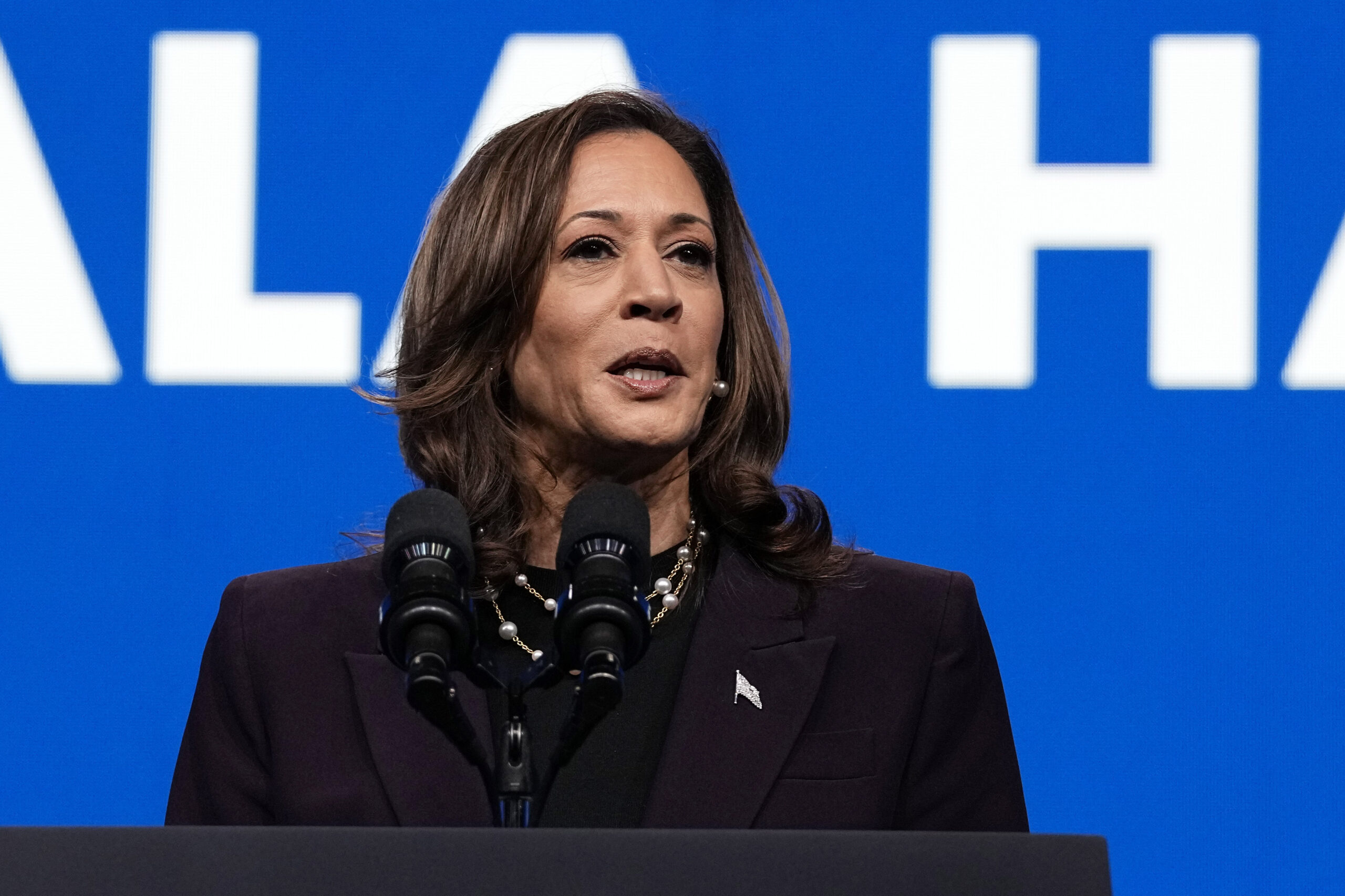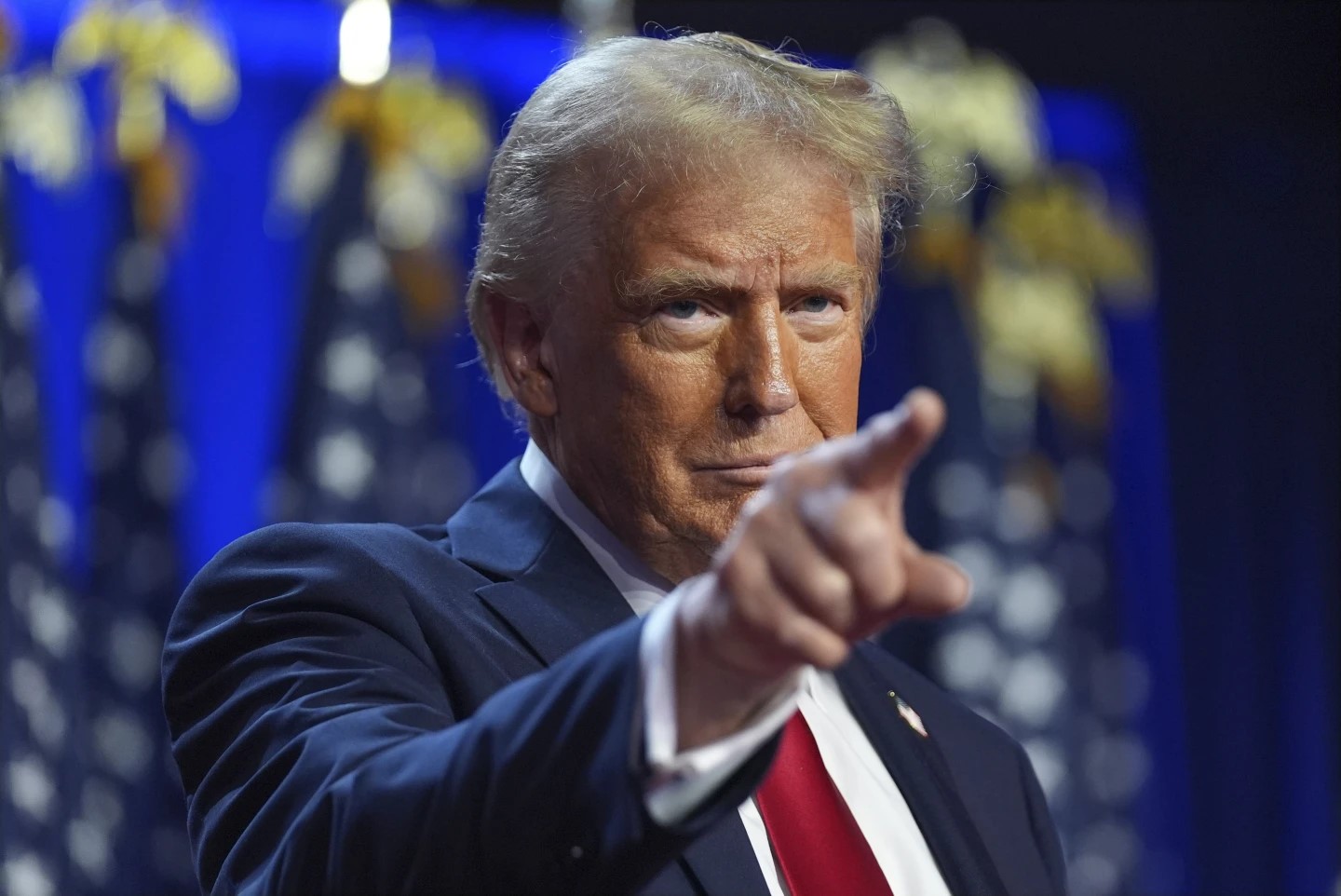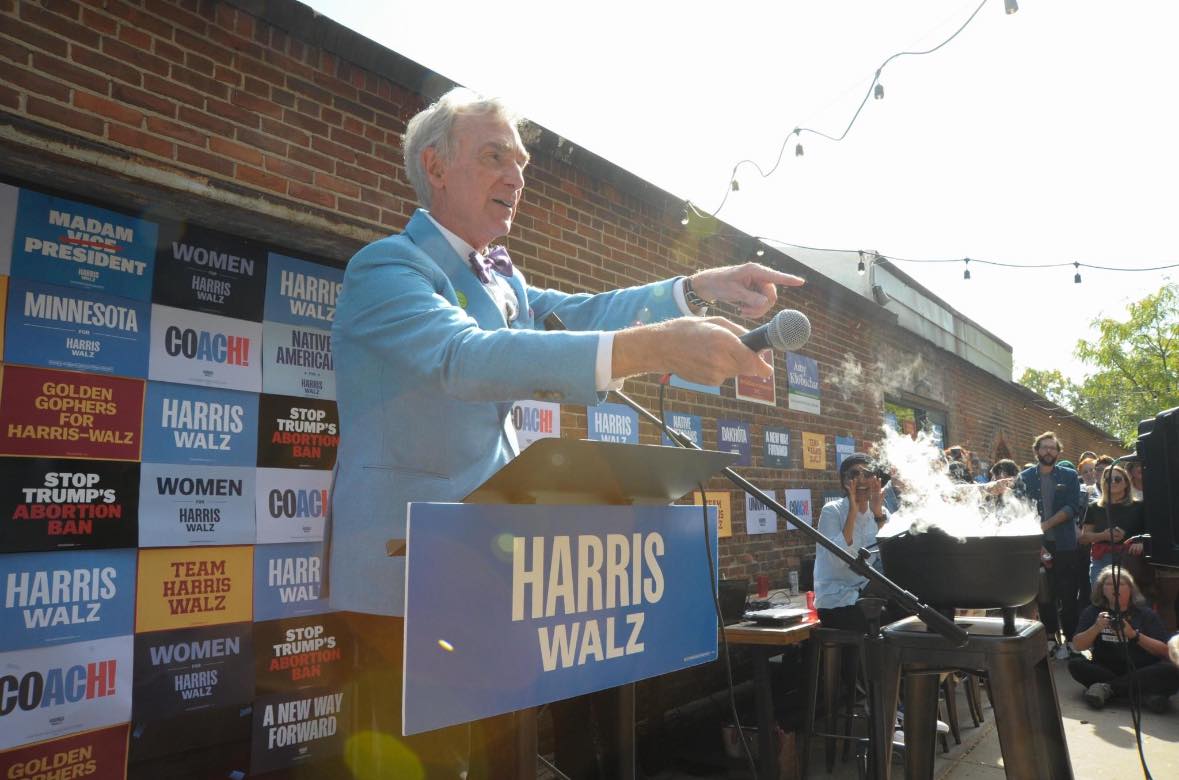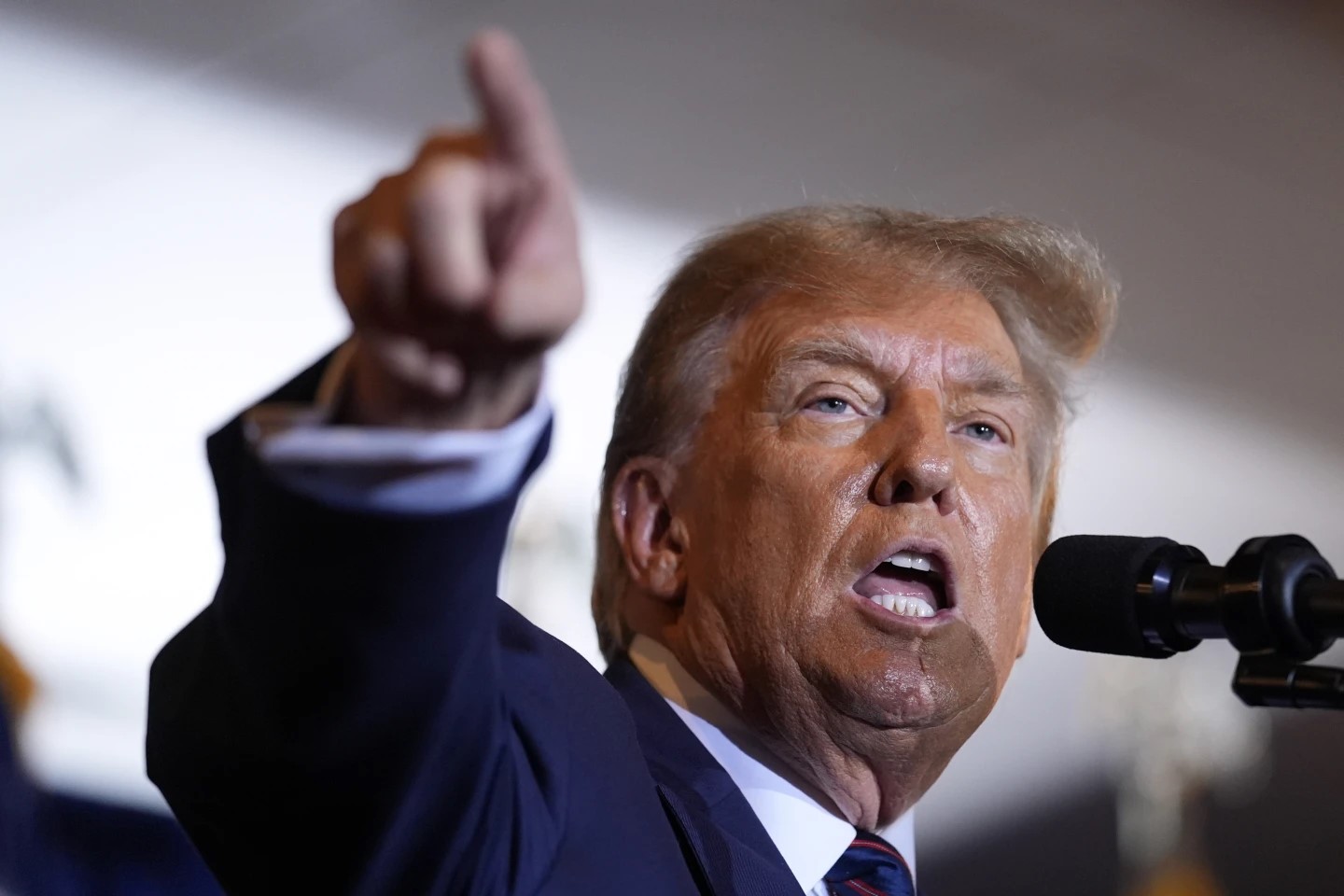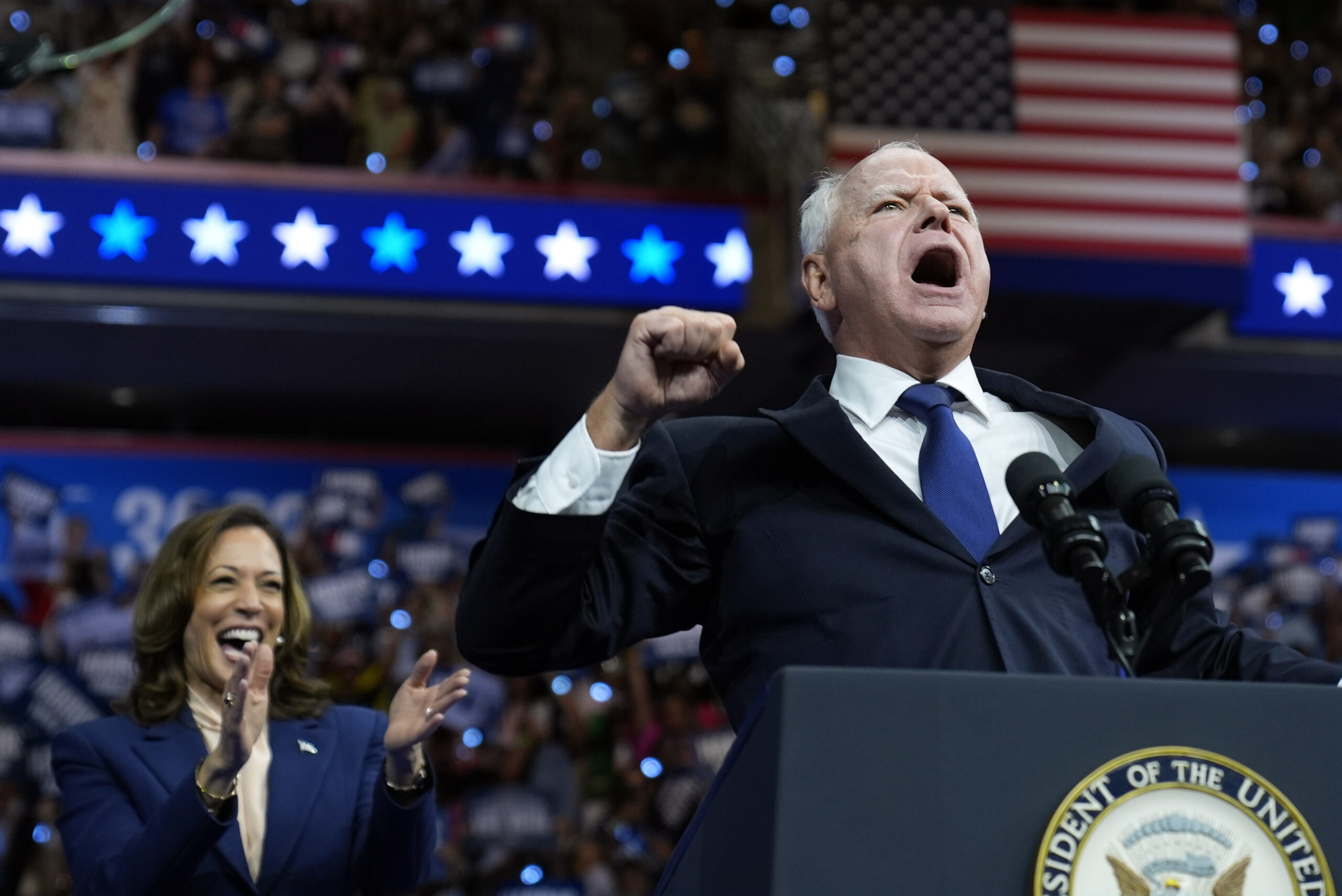While President Joe Biden’s withdrawal from the race for the White House and subsequent re-shuffling of the Democratic Party mostly had national effects, plenty of state-level elected officials felt the impact as well. That includes legislators in North Carolina, where the Democratic Party has been the superminority power in the General Assembly for the last two years and is aiming to state its case to voters in both district-wide and statewide races this fall.
House Minority Leader and District 54 Rep. Robert Reives is one of those Democratic officials who felt energy from his constituents and peers in the wake of Kamala Harris being endorsed by Biden and unofficially tabbed as the party’s nominee for president. Despite typically staying away from national politics, he spoke with 97.9 The Hill on Friday, July 26 about the change, his reaction, where the party goes from here, and what it means for the Democratic Party’s chances in North Carolina. The conversation took place before North Carolina Governor Roy Cooper formally announced on Monday night he was removing himself from consideration as a vice presidential candidate with Harris, which Reives discussed the possibility of for the term-limited governor.
Below is a transcript of Reives’ conversation with 97.9 The Hill’s Andrew Stuckey, which has been lightly edited for clarity and brevity. Click here to listen to the full interview.
Andrew Stuckey: Let’s start with the most recent topic, and that is Joe Biden stepping down from the campaign and Kamala Harris taking over as the presumptive nominee. What was your reaction when that news came out?
Rep. Robert Reives: I’ll tell you what’s funny: I was on a plane, and so — as usual — put [my phone] on airplane mode. When I got on the plane, there was not a murmur or a discussion [about Biden withdrawing], so I was focusing myself because I had several meetings I was going to have to attend. And so I landed, got off the plane… we get out there and we get our bags and all that stuff. My wife texts everybody let them know that we were there, and then I turned my phone on normal service. And I’ve never had that explosion of messages… ever. I was like, ‘Wow, something has happened, let me look!’ And I said, ‘Biden has stepped down? Oh my gosh.’ Everybody else has gotten this in real time, and I’m just catching up — I’m like, (swipes phone) ‘Biden stepped down. Biden stepped down. Biden endorses Harris… this person endorsed Harris, this person endorses Harris.’ I was in shock.
I’ve always admired Joe Biden. I admired him when he was in the Senate, I’ve admired his ability to do something that’s rare in politics. Even as a senator, he could acknowledge, ‘Hey, this was a decision I made then, it might not be a decision [I make now.]’ But that decision to step down is something I’ve never expected to see in my lifetime… not just from him, from anybody. It is almost impossible to get a person in any elected office to step down. I mean, heck, look at how hard it was to get Menendez to step down — it’s just impossible. For him to do something that selfless… it saddened me, because I have an idea of what it meant to him. But I can’t think of a prouder moment that I’ve had of being a part of government and seeing that type of selfless act.
The second reaction was I was very happy for Vice President Harris and was mentally preparing myself for a really, really tough road. Just because I’ve unfortunately had a chance to see some of the nastiness we’ve had for the last 10 years in politics, and I knew that it would go straight to the nastiness, in my mind. And then the third thing happened… the outpouring of money, obviously, was what really kind of started [this response], but the emotion, the excitement. And then to wake up the next morning to the [same] emotion and the excitement. I have not felt this since I’ve been in politics. I’ve not felt this particular feeling in politics, ever.
Here’s where I differentiate it: I thought 2008 was the culmination of a lot of things. I think it was the culmination of the prior Democratic presidencies. And Bush was always a gentlemanly president, you know, so there was never any real nastiness or animosity — even though those were really tense times with 9/11 and things of that sort. So, ‘08 kind of felt like the natural culmination of that, because that’s before we got into this era of politics. I didn’t think we’d see this again in my career in politics, because after 2010, it just became about meanness, harshness, nastiness. In this case, everybody was feeling good, everybody was happy. And more importantly — and I really do believe this — the media was covering the excitement and the happiness. You even heard excitement and happiness from people who made it clear that they may not vote for Vice President Harris — but they respected her, they respected what she’s done, and they respected this process. So, that’s a long way of saying I was shocked and pleasantly surprised.
Stuckey: You kind of mentioned this, but I wanted to dig into it a little bit deeper. You said, “I haven’t had that feeling.” What is that feeling?
Rep. Reives: [The feeling] of ‘this is what government’s supposed to be, this is how people are supposed to feel about government.’ Again, you don’t have to like the process that got us here. You don’t have to be happy about President Biden stepping down or anything of that sort. But you’ve got a growing swath of people who feel like they just can’t do anything. They just can’t affect any change in the government, they just can’t affect any change in this country. And it’s come from a variety of reasons — one, there’s way too much money in politics now. Thanks to Citizens United, Walmart gets to have a voice as a “person” and Walmart is allegedly supposed to have the same voice I have… and I think we know that’s probably not accurate.
[What happened here was,] suddenly, people felt like they were heard. There were people that wanted to see a change, and they were heard. They didn’t feel like the machine just ran them over, and they just had to stick with whatever was told. And that was a great feeling. You had people who just smiled. Even with the intensity that you heard [nationally in the 2016 presidential race], a lot of that intensity was not based on the love and support of something, but the anger towards something else. And that is an exhausting feeling — I mean, I think it takes a lot of effort to stay angry. Just watching the constant anger, the constant belittling, the constant lack of decorum… and all of a sudden, [Sunday] felt like all of that snap back.
Now, I’m realistic enough to know that this is a honeymoon week, you know? <laugh> But it’s been nice to have that feeling for the last five days.
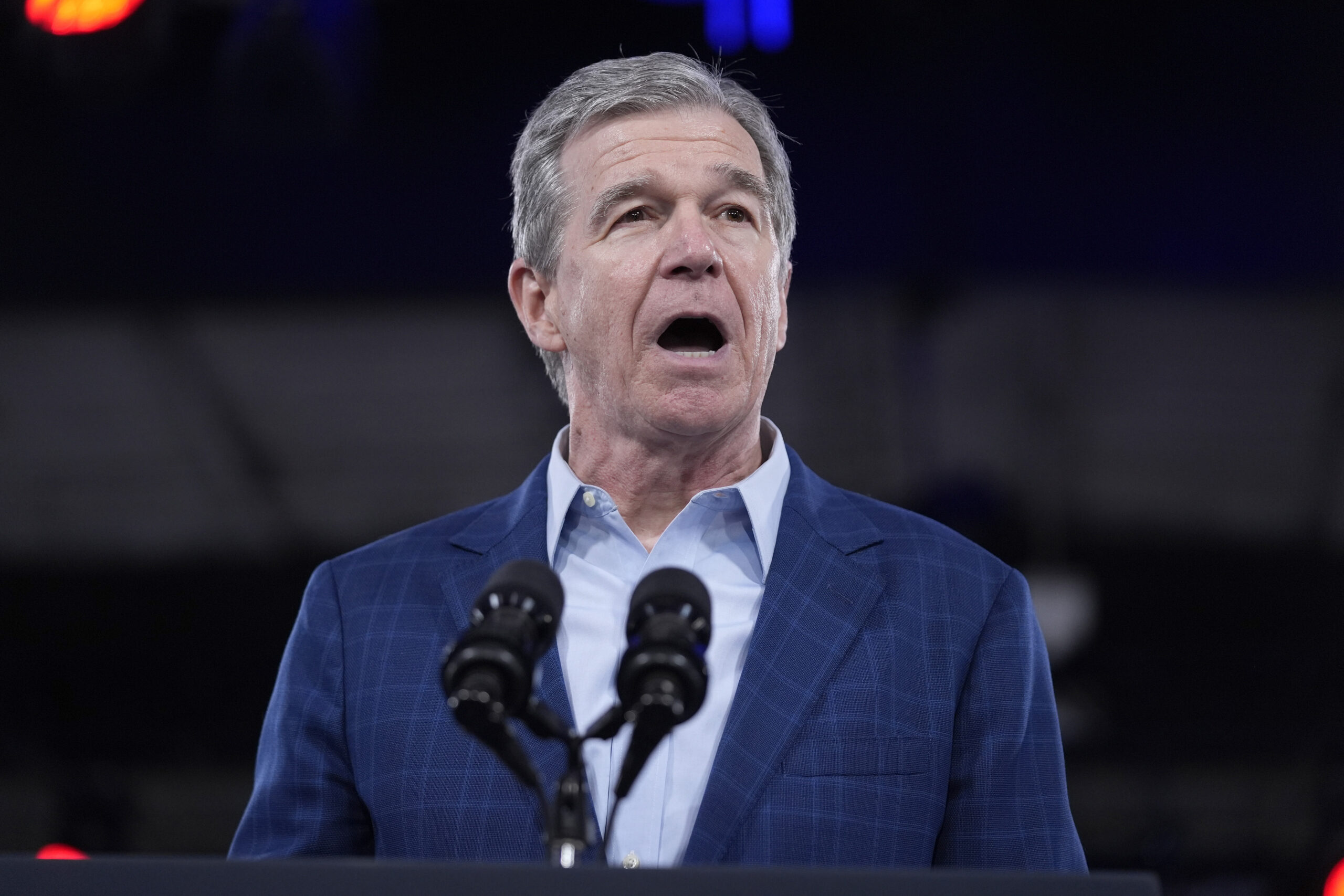
North Carolina Gov. Roy Cooper speaks at a campaign rally for President Joe Biden, Friday, June 28, 2024, in Raleigh, N.C. Cooper’s name had been mentioned among some of the potential choices for Kamala Harris as a vice presidential nominee during her own run for the presidency. He shared on Monday, July 29, that he was removing his candidacy for the role. (Photo via AP Photo/Evan Vucci)
Stuckey: As we kind of transition from that honeymoon phase, one of the fun conversations that’s been going on all over kitchen tables and social media is speculation about a vice president nominee. Obviously, North Carolina Gov. Roy Cooper’s name comes up a lot in those conversations. I wonder if you have any thoughts on what that process is looking like, or if you have anybody out there that you’re particularly interested in seeing on that ticket?
Rep. Reives: What I can tell you is I’ve got absolutely no inside information. Governor Cooper is better than anybody I’ve ever met in politics at playing it close to the vest. So, I can’t tell you about the process, I can’t tell you about his feelings… but I can tell you this: if this is what he wants, I could not be happier if he could be selected. I don’t think that there could be a better choice as a person than he is. He’s just one of the most decent human beings I’ve had a chance to meet. A lot of folks that know me personally, know my father’s been in politics for almost 40 years now. I remember his discussions about Governor Cooper when he was Attorney General Cooper… in fact, when he was serving in the General Assembly. And I remember a specific discussion when he was talking about Governor Cooper’s decisions when he was going to run for higher office, how he made those decisions, and how he resisted a lot of temptations that a lot of us would’ve fallen for. And how he was patient, and he waited his time.
I think [Cooper] could be transformative for the office. And I mean that seriously: I think if you think back to vice presidents that we’ve had in our lifetime, I think the position — not dissimilar from Lieutenant Governor here — has just gotten to a point where it’s not utilized in a way that it could be. We tend to celebrate power more than we do the pulpit, and I think that nobody could utilize the power and the pulpit better than Roy Cooper. So, that’s my preference.
Now, with my heart out the way… I think the top three or four folks that you’ve seen are the top three or four folks. I think that they’ve all got, uh, varying levels [of benefits]: Senator Mark Kelly, governors Andy Beshear, Josh Shapiro, Gretchen Whitmer. But I think that it’s important that it’s a representative ticket. I think that it’s important that it’s a diverse ticket. I think it’s important that whoever is picked, people feel like that they’ve got somebody they are comfortable with.
Stuckey: Obviously, you were very clear out the front that you have no inside information and, obviously, I don’t either. But just reading comments, it seems like Governor Cooper kind of wants it, doesn’t it?
Rep. Reives: <Laughs> Yeah, yeah, yeah, yeah… It is funny you say that, because it actually surprised me that it at least is becoming clear. And I think there is a point in time — for any job —where if you play too coy, then folks are like, ‘Well, I didn’t think you wanted to do it!’ So, I think he is at a point where he’s kind of got to be like, ‘I mean, it would not be the worst thing that ever happened to me.’
Stuckey: We’re almost out of time already. Is there anything else on this topic, or any other topic, that you wanted to mention before we wrap up?
Rep: Reives: I want people to remember the feeling they’ve got this week. Hold on to this, cleave to this feeling. And the reason I say that is… this government can be an outstanding tool for the uplifting of our whole community. If looked at in the right way and utilized in the right way, everybody benefits — this is not a zero-sum game. As we move forward and the nastiness starts creeping back in, and the meanness and the diminution of people… keep this feeling. Remember, you control this. Because I think if the media had seen clicks coming for all the nastiness and the meanness and the sexist and misogynistic comments, then you would’ve seen more of those stories. The media noticed what their clicks were this week: all the positive stories, all the uplifting stories, all the stories that made [voters] happy. We control this. We made this happen, for a nominee to come that we were all excited about. We made this happen, that we’ve had this positive feeling this week. We can change the paradigm in politics if we choose to do it.
Featured photo via AP Photo/Chris Seward.

